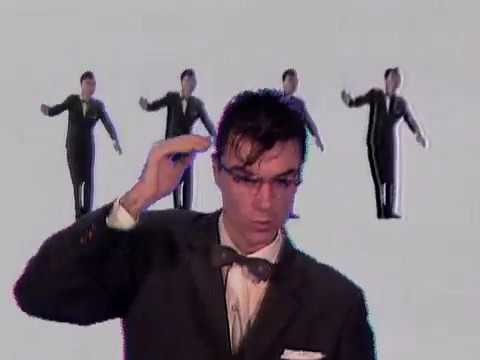(The Talking Heads asking all of the right questions. As spring approaches, I remember blasting this song on sunny days on my way to the Shore. In addition to evoking a sweet nostalgia, the classic also teaches some great Torah.)
The whole problem with the world is that fools and fanatics are always so certain of themselves, and wiser people so full of doubts.
- Bertrand Russell
I am bewildered by the certainty of those who are certain at this moment. In particular, as passions flare about the Israeli-Palestinian conflict, I am in constant shock about the moral certainty expressed about Israel’s very essence, especially from those who have never been to the country, do not speak its language, or possess the ability to check the veracity of what they read online. Likewise, I am saddened by those who really know nothing about Palestinian people or culture that speak with authority about the core components of their viewpoints, their aspirations, or their suffering. I shouldn’t be in shock, but it still gets me. We live in a culture that diminishes the value of intellectual humility and spiritual sensitivity, and instead lures us to a false sense of certainty, affirming our visceral judgments.
That said, what does comfort me is that our tradition seems deeply committed to discouraging the kind of certainty that can lead us astray. It is up to us whether or not we heed its lessons.
In this week’s portion, Mezorah, we learn in the Book of Leviticus:
Leviticus 14:34-35
כִּ֤י תָבֹ֙אוּ֙ אֶל־אֶ֣רֶץ כְּנַ֔עַן אֲשֶׁ֥ר אֲנִ֛י נֹתֵ֥ן לָכֶ֖ם לַאֲחֻזָּ֑ה וְנָתַתִּי֙ נֶ֣גַע צָרַ֔עַת בְּבֵ֖ית אֶ֥רֶץ אֲחֻזַּתְכֶֽם׃
When you enter the land of Canaan that I give you as a possession, and I inflict an eruptive plague upon a house in the land you possess,
וּבָא֙ אֲשֶׁר־ל֣וֹ הַבַּ֔יִת וְהִגִּ֥יד לַכֹּהֵ֖ן לֵאמֹ֑ר כְּנֶ֕גַע נִרְאָ֥ה לִ֖י בַּבָּֽיִת׃
the owner of the house shall come and tell the priest, saying, “Something like a plague has appeared upon my house.”
The wording in the second part of the second verse is phrased with great care, “something like a plague has appeared in my house.”
Why is the person who sees a disease infecting his one given a formula that contains ambiguity and doubt? Rashi writes:
Even if he (the owner of the house) be a learned man and knows for sure that it is a plague he shall not decide the matter as a certainty saying, "a plague hath shown itself to me" but, “something like a plague hath shown itself to me" (Mishnah Negaim 12:5; Sifra, Metzora, Section 5 10).
We are not allowed to make the diagnosis ourselves. The tradition demands that an individual conduct a conversation with the expert and leader in the community, even if he is learned himself. Why? 1) We should never believe that we alone can diagnose what is wrong with our own home 2) The community needs its leadership affirmed so that each individual cannot make assessments according to what is right in her or his eyes. When everyone makes their own assessment, mistakes and excuses are made. The plague can spread, and the community can be consumed by chaos and confusion.
Jewish tradition requires a conversation. It requires humility about what we can claim to know, especially about what lives in and on our own homes. We need to be trained to express doubt, and verify what we claim to know, regardless of our experience or education.
On Passover, one of the lines that has always resonated with me is the commandment to tell the story, regardless of how learned we are or how many times we have heard it in our lives. We always catch something in the narrative that we haven’t before, especially if we are doing it right — in the presence of community and in the context of conversation. The story’s meaning and impact evolve with the teller, who they have become, and who is listening and questioning. We tell the story in community — time and time again — because we change, the world changes, and our conversations are shaped by who we are in the moment. The more we expound upon the story, not in isolation, but in community, the deeper our wisdom becomes. And if we have acquired a heart of wisdom, we leave our seders with a greater sense of awe, a deeper sense of gratitude, and many more questions for next year.
None of us know what a redeemed Jerusalem looks like or feels like. We pray every year that we should behold the peace and certainty that the messianic age promises. Passover betrays its promise when we claim to know what redemption is, when we are convinced that we are the only ones not still wandering in the desert after liberation. Plagues spread when we claim to know precisely what afflicts us, and do not consult with those who can challenge and verify our suspicions, no matter how well founded or deeply held.
As we approach this Passover, let us remember not only the story of our liberation, but also the commandments to ask questions and speak in ways that remind us to be appropriately uncertain. Moral judgment does not require certainty, but it is strengthened by healthy doubt and compassion. Our Torah teaches us that only humility and forthrightness can stem a plague, and bring us one tiny step closer toward an ultimate redemption.
Shabbat Shalom and Chag Sameach!
PS: Sorry these past few weeks have been nutty and Small Potatoes has not made an appearance. In case you missed it:
Beth Israel Congregation and Colby College made it into the New York Times.
We also got picked up by Kann, Israel’s version of PBS, in a story that I’m sure was a wild surprise and maybe even a welcome distraction from the tragedies in Israel and Gaza.



